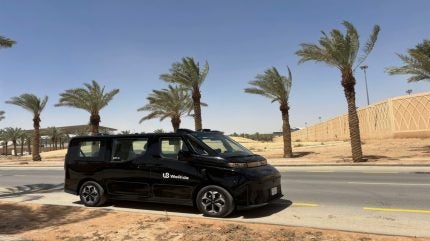
WeRide, an autonomous driving technology firm, has announced its expansion into Saudi Arabia, a move that aligns with its global growth strategy.
The company has initiated testing and deployment of Robotaxis and core autonomous products in cities such as Riyadh and AlUla, preparing for a commercial rollout and broader operations within the Kingdom.

Discover B2B Marketing That Performs
Combine business intelligence and editorial excellence to reach engaged professionals across 36 leading media platforms.
The company has begun ground preparation for its upcoming Robotaxi trial operations, supported by the Transport General Authority.
The service is expected to launch on Uber soon, with full commercial services anticipated later this year.
This initiative supports Saudi Arabia’s Vision 2030 to create smart, sustainable cities by enhancing road safety, improving traffic management, and introducing innovative mobility solutions.
In addition to Robotaxis, WeRide is testing and deploying its Robobus in strategic locations throughout Saudi Arabia, including King Fahad Medical City and Aramco residential communities.
The Level-4 autonomous vehicle is designed to improve the travel experience by bridging last-mile transportation gaps and complements transit networks, such as the Riyadh Metro.
Tailored to the region’s hot climate, the Robobus caters to various use cases, from parks to large hotels and tourist sites.
WeRide has also introduced the Robosweeper S1 in Riyadh at King Fahad Medical City, marking the first monetised autonomous sanitation project in the region.
WeRide’s entry into Saudi Arabia builds on its expanding presence in the Middle East.
Earlier this month, the company commenced fully driverless Robotaxi testing in Abu Dhabi, a first for the region. It plans to extend Robotaxi service to Al Maryah and Al Reem Islands, two high-demand areas in Abu Dhabi.
Moreover, WeRide and Uber have broadened their strategic partnership, aiming to introduce Robotaxis to 15 additional cities worldwide over the next five years, including locations in Europe and the Middle East.






